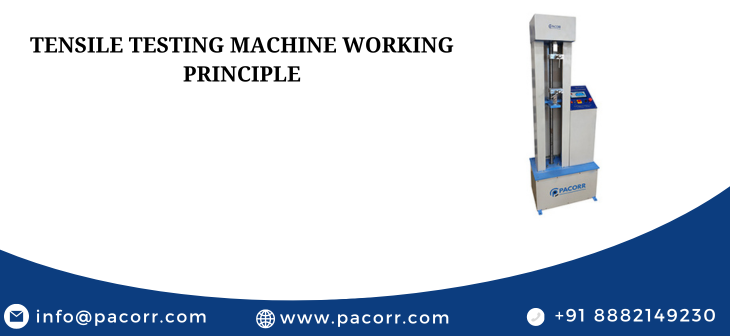
Understanding the functionality and underlying mechanics of a tensile testing machine is crucial for professionals in the materials testing field. This sophisticated equipment, provided by industry leaders like Pacorr, plays a vital role in assessing the tensile strength of various materials, ensuring they meet both industry standards and application-specific requirements. By focusing on the device's working principle and its alignment with standards such as ASTM D412, ASTM D429-73, and others, this article will provide a comprehensive view of its capabilities and applications.
What is a Tensile Testing Machine?
A tensile testing machine, often referred to as a tensile strength tester, is designed to test the tensile strength and ductility of materials. This includes a wide range of substances from metals and plastics to fibers and papers. The core function of the machine is to apply a controlled tension force to a sample until it breaks. The results from these tests are crucial for quality control, material selection, and research purposes.
Core Components of a Tensile Testing Machine
To understand the working principle of a tensile testing machine, it’s essential to first know its main components:
- Load Frame: The structure that holds the mechanical and electronic components, providing stability during testing.
- Load Cell: A critical sensor that measures the force applied to the specimen.
- Grips and Fixtures: These hold the material in place during testing. Their design varies depending on the material being tested.
- Control System: Usually a computerized system that controls the machine's operations, including the speed of the test and data collection.
Working Principle Explained
At its core, the working principle of a tensile testing machine involves several key steps:
- Sample Preparation: The material sample is prepared according to specific standards, which define its dimensions and shape to ensure consistent results.
- Mounting the Sample: The prepared sample is securely fastened to the machine’s grips, ensuring it is aligned properly to avoid any bending stresses during testing.
- Applying Tension: The machine applies a tensile force to the sample through the movement of its grips. This force is increased gradually until the sample fails or breaks.
- Data Collection: Throughout the test, the load cell sends data to the control system, which records the force applied and the elongation of the sample. This data is then used to calculate the material's tensile strength, modulus of elasticity, and other properties.
Conformance with Standards
Tensile testing machines must conform to a variety of standards to ensure reliability and comparability of results. Some of the key standards include:
- ASTM D412 and ASTM D624 for rubber and elastomers.
- ASTM D638-01 for plastics.
- ASTM D76 for textiles.
- IS 13360-5-7 and IS-3400 for specific Indian standards related to plastic and rubber testing.
These standards dictate everything from the dimensions of the test specimens to the speed at which the machine should operate.
Applications of Tensile Testing in Industries
The tensile testing machine finds its applications in numerous sectors:
- Manufacturing: Ensuring materials meet certain strength requirements before they are used in production.
- Aerospace: Testing materials that will be subjected to high stress and strain during operation.
- Automotive: Evaluating materials for safety and performance standards.
- Research and Development: Developing new materials and improving existing ones based on test results.
Pacorr's Offerings
Pacorr stands out as a provider of high-quality tensile testing machines, designed to meet both international and domestic standards. Their equipment is renowned for its reliability, accuracy, and user-friendly interface, making it a preferred choice for many professionals in the field of material testing.
The tensile testing machine is indispensable in the field of material science, providing key insights into material behaviors under stress. Understanding its working principle and standards helps professionals ensure that materials are safe, effective, and capable of standing up to the demands of their applications. Pacorr's commitment to quality and compliance with global standards makes their machines an excellent investment for serious material testing professionals.
Thanks to Pacorr Testing instruments, we have all the required quality testing instruments that have helped us to ensure the best quality delivered to our clients.

Danish
Fair Exports Pvt. Ltd.

